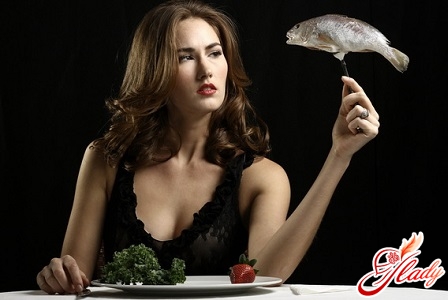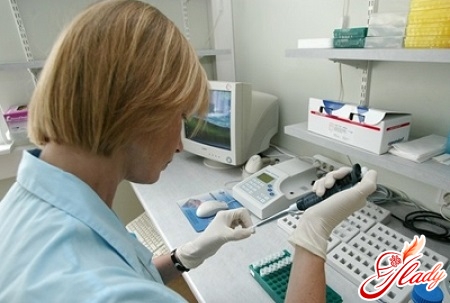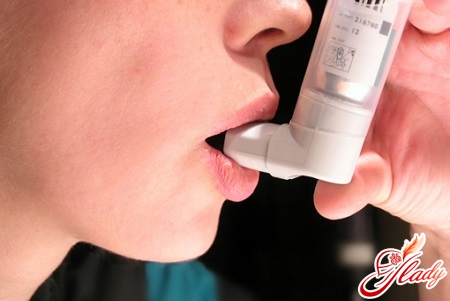 An allergic reaction may occuralmost anything. Medicines, chemicals (both household and industrial), some types of food - all of this can contain that very foreign protein to which our immune system reacts. To cope with the manifestations of this disease, you have to not only take medications, but also go on a strict diet.
An allergic reaction may occuralmost anything. Medicines, chemicals (both household and industrial), some types of food - all of this can contain that very foreign protein to which our immune system reacts. To cope with the manifestations of this disease, you have to not only take medications, but also go on a strict diet.
Features of proper nutrition
People who have encountered this disease do notknow from hearsay what an important role food plays in this case. Nutrition for allergies should be balanced to avoid such a nuisance as vitamin deficiency. At the same time, the menu should not include foods rich in carbohydrates. And the less often you eat such food, the better. For example, you will have to exclude sugar, honey, chocolate, alcohol for a while, since the carbohydrates included in their composition are absorbed quite quickly. And sucrose stimulates the fermentation process. Can't drink tea without sweetening it? Use a special sugar substitute. As for food rich in proteins and fats, there should be no more of it than your body requires. When developing a menu for yourself, do not forget to take this into account. Please note: no matter what dish you cook, it should contain a minimum amount of salt. Of course, at first it is difficult to eat bland dishes, but then you will get used to it. The same applies to sauces, seasonings, hot ingredients, spices, smoked foods. At first, any meat, fish and mushroom dishes are contraindicated for the sick person. If you need to make soup or borscht, make it with vegetable broth. Moreover, you cannot fry it (onion plus oil), as we are used to doing. And in general, you do not need to fry any products! Only stew, boil, bake, without marinating or adding seasonings beforehand. If you follow these rules, you can avoid worsening your condition. Plus, the allergen (if it is in some product) will stop being absorbed so quickly. And after some time, you will feel much better: all the symptoms will go away and your health will improve.
Causes of food allergy
In the twenty-first century, people increasinglyare faced with manifestations of food allergies. And the reason lies not only in bad heredity or ecology. Rather, the manufacturers are to blame, adding such a quantity of dyes, stabilizers, preservatives and other nasty things to food products that the body of even the healthiest person cannot withstand such a load. By the way, pesticides and fertilizers used in agriculture also affect our health. Unfortunately, all this is not always removed from the same watermelons and zucchini in time. Plus, excessive love for chemistry (both household and medicinal) also contributed to the decrease in our immunity and the appearance of allergies to food products.
What foods are allergies?
In fact, allergies can be to anythinganything from strawberries to wheat. It is simply impossible to list them all. But most often it concerns eggs, milk, sea creatures (mussels, squid, mollusks, fish), nuts, chocolate, citrus fruits. Less often, our body reacts to a certain type of meat product. This can be either poultry, or pork, or beef. Sometimes milk intolerance develops. But here you should be careful, since allergy and intolerance are two different things. If, for example, you feel bad from both cow's and goat's milk, it means that your body does not produce the substance responsible for the absorption of lactose. By the way, this happens to many adults. Often, such individuals do not consume dairy products at all, be it cottage cheese, butter, sour cream, etc. Even chocolate, which contains this ingredient, can cause a very violent reaction, up to Quincke's edema. As mentioned above, eggs are one of the strongest allergens. The reason lies in the protein, rich in albumin. But if you heat it (boil or bake), this substance becomes less active. As a result, you will be able to eat buns or salads. But drinking raw eggs is not recommended - it will only make things worse. As for fish, unfortunately, it practically does not lose its allergenic properties. Even if you boil or bake it, the allergy sufferer will feel bad after eating it. But not all sea or river inhabitants necessarily cause this disease. Often the body reacts either to crabs and squid, or to crayfish and oysters, or to red meat. And so on down the list. To find out what you are allergic to, you will have to go to the clinic to take tests and undergo tests. Keeping a diary can also help, in which you should indicate the products and dishes eaten at that particular moment, as well as your feelings. Eventually, you will be able to identify the allergen. After that, you will need to exclude from your diet every product that falls into the risk zone. After a week, you can gradually introduce everything into the menu, but in small quantities. And as soon as the allergy symptoms appear again, you will receive irrefutable confirmation of the assumptions made earlier. Another option that is used to identify the allergen is a strict diet. It differs from the previous one in that the patient should not eat anything at all for the first three days. Only tea is allowed, naturally, not very strong. It can also be slightly sweetened with sugar. During this time, the body has time to cleanse itself of the allergen. On the fourth day, cereals and bread products are introduced into the diet. After a couple more days, you can eat dairy products. To exclude other types of allergies (for example, to dust, household chemicals, pets and plants), the hospital will offer you to do skin tests. An allergen is injected into a small scratch or into the shoulder area. And if the results are negative, that is, you don’t feel sick, then you have an intolerance to the food.
How does the food allergy manifest itself?
In fact, it all depends on your body.Sensitivity to a particular product can be so high that a person immediately begins to choke, feel sick, have a headache, vomit, or experience swelling. In this case, just the smell of the intolerable substance is enough to cause the listed symptoms. Therefore, nutrition during allergies should be carefully monitored so that a prohibited ingredient does not accidentally appear in some dish. Otherwise, if you make a mistake, an exacerbation may begin. You must be attentive, listen to your feelings. And if the first signs of an allergy are detected (weakness, chills, itching, swelling, rash), urgently take a special medicine or call an ambulance. If the allergy symptoms are not pronounced, everything will pass in a couple of days.
How to eat with allergy
As mentioned above, first from the dietthe patient excludes everything that can cause an allergy. Then, when the exacerbation passes, you can try to accustom your body to products that do not cause severe symptoms. At first, very small amounts of such ingredients are introduced into food (start with a pinch of this or that substance diluted in plenty of water), gradually increasing the dose. The same products that do not play any important role in nutrition can be excluded forever. For example, you can easily live without lemons, strawberries, honey, chocolate, fish, etc. on the list. It is much more difficult with what is included in some dish (eggs, milk, cereals). In this case, you will need to dilute everything with liquid (for example, make compotes from fruits), subject it to heat treatment. During the period of accustoming your body to such products, you should be careful. Thus, any experiments should be carried out under supervision. If you suddenly feel ill, your relatives will be able to provide first aid and call an ambulance. Plus, your first aid kit should always contain medications that relieve allergy symptoms.
What you can eat with an allergy
Depending on what you are allergic to,your doctor may suggest a special diet, the main purpose of which is to cleanse the body of foreign protein. After the exacerbation period has passed, you will need to continue to follow a certain regimen to avoid repeated contact with the allergen. Patients are usually recommended the following products:
- Flour products
The daily norm is no more than 250-350 grams (in(depending on lifestyle and body weight). Any unsweetened flour products, bran or rye bread are allowed. But you should be careful with products made from wheat. Also, you should not buy pies with filling.
- Soups
As mentioned earlier, you can't eat liquid foods,cooked in a strong meat broth. You can eat borscht, beetroot soup, soup. However, in this case, one rule applies - only approved products are used. Even if you are not allergic to fish or mushrooms, it is better not to experiment yet.
- Meat
Lean varieties of poultry and beef are allowed.The meat is either steamed, boiled or baked in the oven. Diet sausages are also allowed, which do not contain any dyes, flavor additives (for example, glutamates), or stabilizers.
- A fish
Fish is allowed, of course, if you don't have anyno allergies. Again, choose only lean varieties. You can make steamed cutlets from fillet. You can't eat canned food, whether it's in its own juice or in tomato sauce. It contains additives that have a negative effect on health.
- Milk products
It is best to choose ultra-pasteurizedmilk, as it goes through several stages of processing and does not contain hazardous substances. Fermented milk drinks (kefir, ryazhenka, sour milk) are also allowed, the only thing is that the products must be natural, without palm oil and dry powder. The same applies to cottage cheese and low-fat unleavened cheese.
- Eggs
It was mentioned earlier that eggs fall into the categorydangerous and even prohibited products for allergy sufferers. But this mostly concerns raw products. Therefore, cook them either soft-boiled or make steam omelets (preferably without yolk). It is also allowed to use eggs in baking.
- Garnish
During periods of exacerbation, you can only eat porridge made frompermitted cereals (buckwheat, pearl barley, millet), then gradually it is recommended to introduce pasta and legumes into the diet. Important! Side dishes are prepared in water, without adding milk, sugar, butter, or seasonings.
- Vegetables
Nutrition for allergies should bebalanced. A person should not consume too many carbohydrates, as this can lead to a relapse. Therefore, in this case, it is recommended to lean on cabbage, cucumbers, eggplants, pumpkin, zucchini. Potatoes are also allowed in small doses. Be careful with tomatoes, as they cause allergies. There are different ways to cook vegetables. It is allowed to stew, boil, bake, make salads. Please note: when heat-treated, the allergen is destroyed in some products or its effect is weakened. Therefore, it is still better not to eat raw vegetables at first.
- Fruit
When choosing fruits and berries, make sure thatthey were grown in your region. The fact is that foreign exotic delicacies can cause severe harm to your health, including poisoning. Before transportation, many producers treat fruits with special chemicals or wax so that they can be stored longer.
- Sweets
Without glucose, our brain simply cannot function normally.to work. And how can you cheer yourself up if you can't have chocolate or condensed milk? In fact, there are many alternatives. For example, you can eat jelly. It's not only tasty, but also healthy. Coating the stomach, jelly prevents allergens from being absorbed. Just remember that you need to cook it, not buy it in packs. After reading the composition of these, you will understand why it is better not to eat store-bought products. A small amount of candies made with sorbitol or xylitol is also allowed. Naturally, you need to adhere to the norm - a maximum of 100 grams per day, no more. Otherwise, you will walk around with a rash and itch for the next two days. And this despite the fact that they are considered safe.
- Sauces
Mayonnaise and ketchup are strictly prohibited.mustard. But you can make homemade sauces on vegetable broths. Just don't add any seasonings, fats, spices, or pepper. Try to add as little salt as possible, as it retains water in the body, which can again cause an allergic reaction.
- Beverages
You can drink weak tea, juices from permitted onesvegetables and fruits, compotes, decoctions. You should drink at least 1.5 liters of liquid per day. And don't forget about mineral or purified water without gas. Eliminate all alcoholic beverages. In the future, it is better to abstain from cheap alcohol (especially beer and wine), since such products contain too many chemicals. You also cannot drink coffee.
How to avoid the occurrence of allergies in the future
First, check with your doctor,what foods you can eat in the future. To identify prohibited ones, you will have to donate blood for IgE. And strictly follow the recommendations of a nutritionist, since even banal parsley can lead to a relapse. Secondly, cook everything yourself. No semi-finished products or fast foods. No time to mess around with making cutlets and pancakes? Do it all on one of the weekends, freeze it and put it in a bag. When you need to cook something quickly, just throw the preparation in a frying pan or heat it up in a microwave (depending on what kind of dish it is). If you still have to buy some ready-made product (canned tomatoes, peas, cucumbers, stewed meat, etc.), always read the composition first. And if there are too many chemicals and unfamiliar abbreviations, it is better to refuse this option. It is unlikely that you will be able to find completely natural products, since substances are added to canned goods that do not allow the contents to spoil. But the less nasty stuff there is, the better. In restaurants, cafes and other similar establishments, always ask the waiters what a particular dish consists of. And be sure to ask them to warn the cook that you are allergic to pollen, pepper or some other substance. You never know what secrets are kept in their kitchen. Do the same when visiting. And if you follow the rules listed, the allergy will not be so scary.









